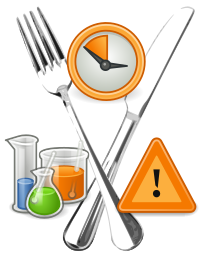
Photo from wikipedia
ABSTRACT Background Efficacy-driven assessments of linguistically appropriate occupational health and safety training (OHS) for dairy workers remain uncommon. This study analyzes predictors of performance on a dairy safety knowledge test… Click to show full abstract
ABSTRACT Background Efficacy-driven assessments of linguistically appropriate occupational health and safety training (OHS) for dairy workers remain uncommon. This study analyzes predictors of performance on a dairy safety knowledge test using pre-and-post knowledge assessments. The safety training course was delivered by iPad™ to Idahoan dairy workers, managers, and owners. Objective To determine the predictors of safety knowledge scores among dairy worker course participants. Methods Predictors of pre-test (baseline) scores and change in test scores of n = 1,336 participants were compared, and multivariate iterative linear regressions were used to predict test performance, adjusting for variables such as occupation, years of formal education, native language, and years in dairy work. Results Test scores for Spanish and English speakers improved between pre-test and post-test. Years of formal education was the most predictive variable of higher baseline scores and change in test scores among dairy safety course participants, regardless of language. Conclusion Dairy worker safety training course results showed improvements in safety knowledge and test scores. Years of formal education of participants appears to be a key determinant of increases in safety knowledge, and therefore safety training programs need to address the learning needs of less educated workers.
Journal Title: Journal of Agromedicine
Year Published: 2022
Link to full text (if available)
Share on Social Media: Sign Up to like & get
recommendations!